Growing up within a genocidal and violently imperialist society, I’ve long recognized that my very existence implies extraction and exploitation. As such, I hold myself accountable for two types of response to that reality:
First, working proactively to subvert and dismantle oppressive systems. Organizing, political education, and a whole range of activist practice is mostly done in community with others.
Second, individually minimizing the harm I personally cause through my consumption, employment, financial and interpersonal choices. Taking responsibility for the impact of my decisions, by refusing to participate where I can find less destructive options.
Clearly, the first is primary: we won’t “individual choice” our way out of systemic injustice. But I also care about the second, not out of a guilty conscience or unrealistic pursuit of “clean hands” so much as a conviction that participating in the harm – even through passive complicity – changes me in ways I cannot easily accept. Every time I walk past someone sleeping on the street to go about my business, every time I replace my laptop or smartphone with full awareness of the conflict minerals and exploited labor involved, I act as an accomplice to capitalism’s systemic violations of human rights.
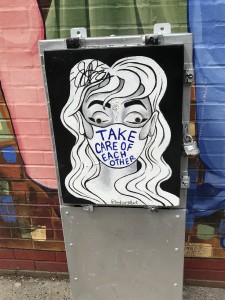
This has been my orientation toward the pandemic, too. Since even an asymptomatic infection can spread to others, damaging their or my own health in long-lasting ways, I decided early on to move as if I always could be a carrier, i.e. masks, distancing and avoiding non-essential gatherings and indoor activities. Two years on, my stance hasn’t changed. The ethics feel clear: every one of the millions who have died or been disabled by this virus caught it from someone, and I need to know I have done all that I can to not be that someone.
As most of the people around me resume gathering and traveling, I’ve found it increasingly difficult to communicate my boundaries without provoking a defensive or emotional reaction. Unlike my other harm-reducing lifestyle decisions (e.g. most of my friends drive cars and don’t feel attacked by my decision to live without one,) differences in COVID precautions create a much more alienating divide. My hope is that with this writing, I can explain my position to those who want to understand, without pressure to respond right away, if at all.
My choice to hold a hard line on minimizing COVID risk is between me and my own conscience, given my particular situation, privileges and variables. It is not a judgement of how anyone else is navigating this impossible situation; I fully recognize that others have legitimate reasons for making different choices.
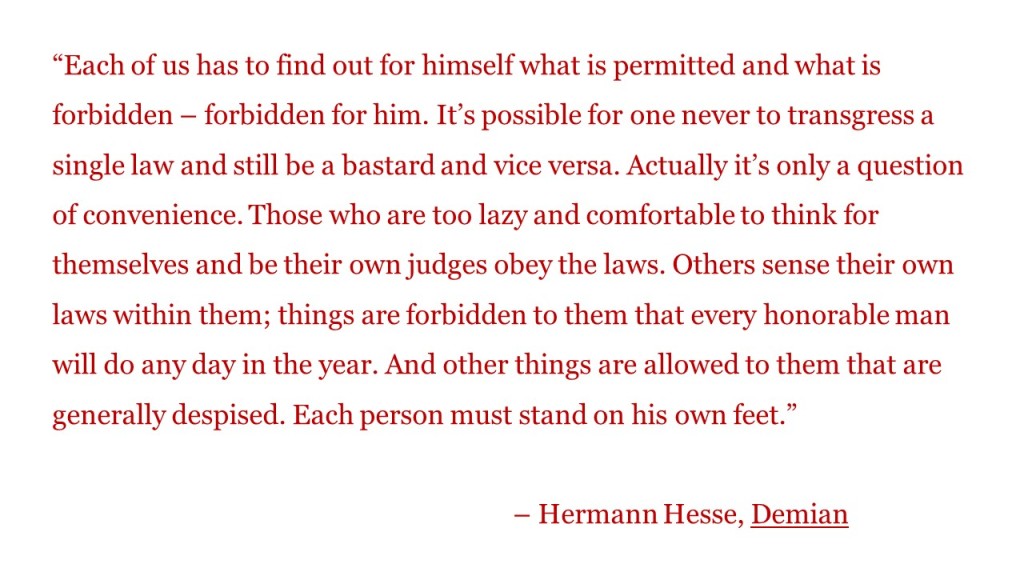
I see our collective response to this pandemic as, in effect, a eugenic cull, a systematic murder and disabling of the most vulnerable in our society through a negligent fixation on keeping the pipelines of extraction flowing upward. I am selfishly fighting for my own humanity in the face of the rapid devaluation of human life at a time of increasingly apocalyptic social and environmental collapse. I simply cannot endanger anyone’s life or health for anything less than sheer necessity. And I know that the people who love me wouldn’t want to pressure me into participating in something I perceive as mass murder.
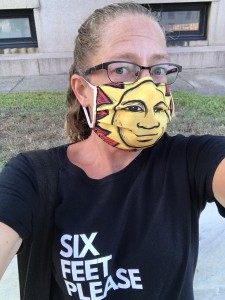
These are all “I” statements, not a bar I’m measuring anyone else against. All I expect of my friends and comrades is that they are aware of their impact and making intentional choices about how to live in right relation to their own values. I believe that to be the case across the board, even when our specific commitments and compromises diverge.
I’ve never been a big fan of the expression “there’s no ethical consumption under capitalism.” While basically true, it’s often invoked as a cop-out to avoid owning our agency and responsibility for the choices we do make, even with all the trade-offs and imperfection that entails. But in this era of pandemic, fascism and climate apocalypse, I’m rejecting the phrase for a further reason.
After contemplating the overthrow of capitalism for so many years , watching the unsustainable system ultimately overthrow itself implies a fundamental reorientation. Our work, now, is to build the systems, networks, and relationships that might hold those who survive this violent endogenous collapse.
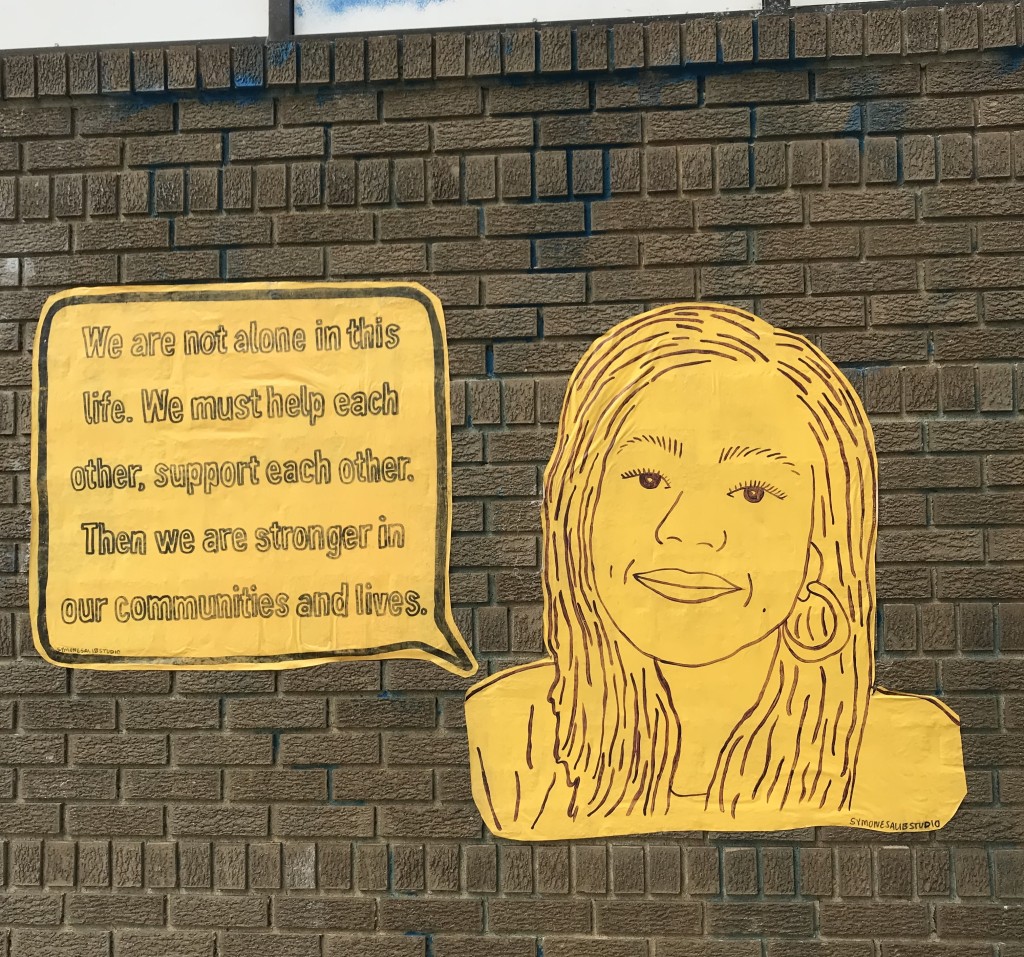
So, now, every choice we make, in all our relationships, matters more than ever. Buying that book from an independent local bookstore that also hosts community announcements and events? Getting your veggies at the farmer’s market or co-op? Stepping off the cultural bandwagon that glorifies excessive consumption? Every time we withhold our participation in the systems that are killing us, and invest in those that are building a future, that is the work. And for me, right now, abstaining from activities that might spread this virus, is an act of care. Self-care and community care, but not an accusation or lack of compassion for others’ choices.
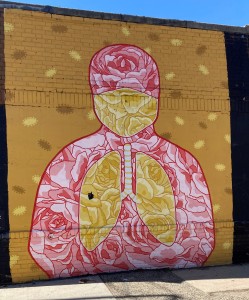
Please trust and accept that the care that I am bringing to this moment has nothing to do with judging or holding myself above anyone. We’re all doing our best, under radically imperfect circumstances, and for me that looks like continuing to hold back as long as this horrible virus runs rampant.
Let’s continue finding ways to build together that honor all of our needs and the lines we hold, whether that means online meetings, socializing outdoors, or allowing me to skip your gathering without taking it personally. This is how we build our new world: simultaneously unified and tolerating differences. We don’t need to walk in lockstep to walk together.
I want to thank you for writing this piece. I have long Covid, and it means the world to me to know that folks like you are out here doing the right thing because it’s right. Your actions may very well help someone like me re-enter society more safely. This is true community care. I just want you to know that it matters.